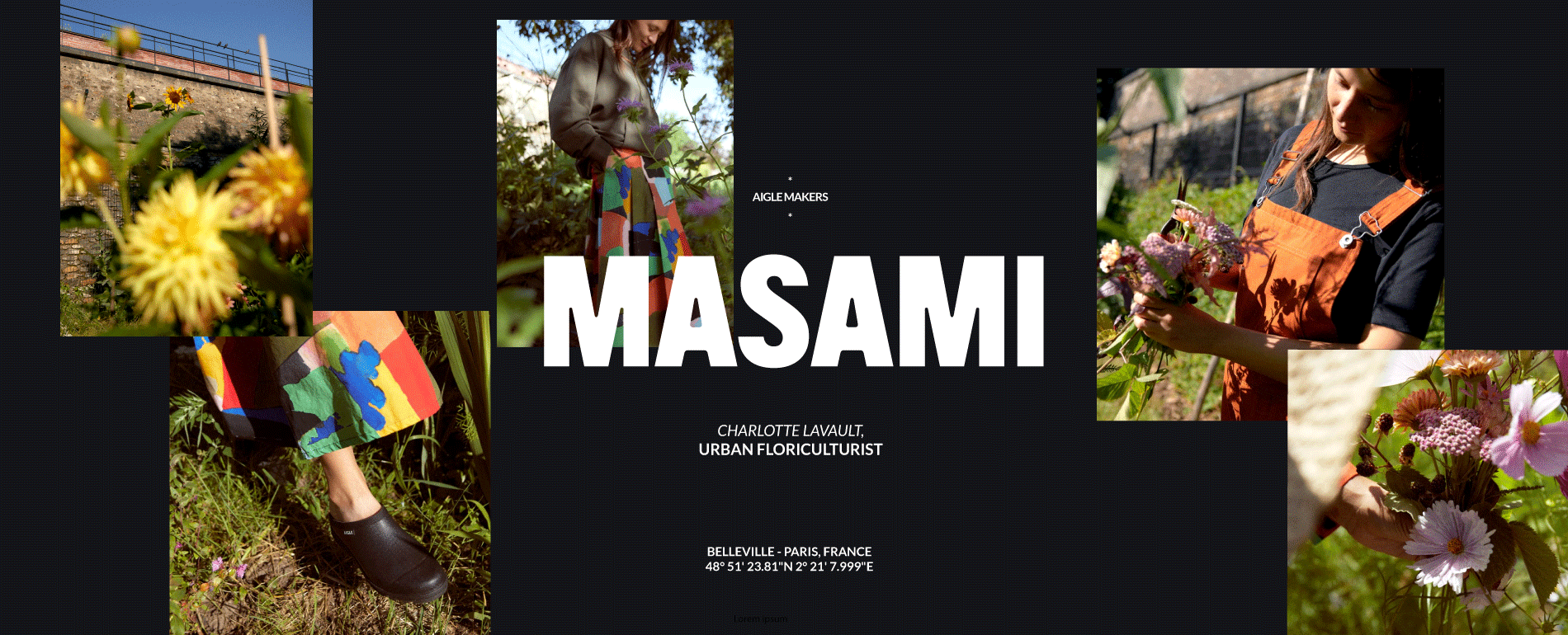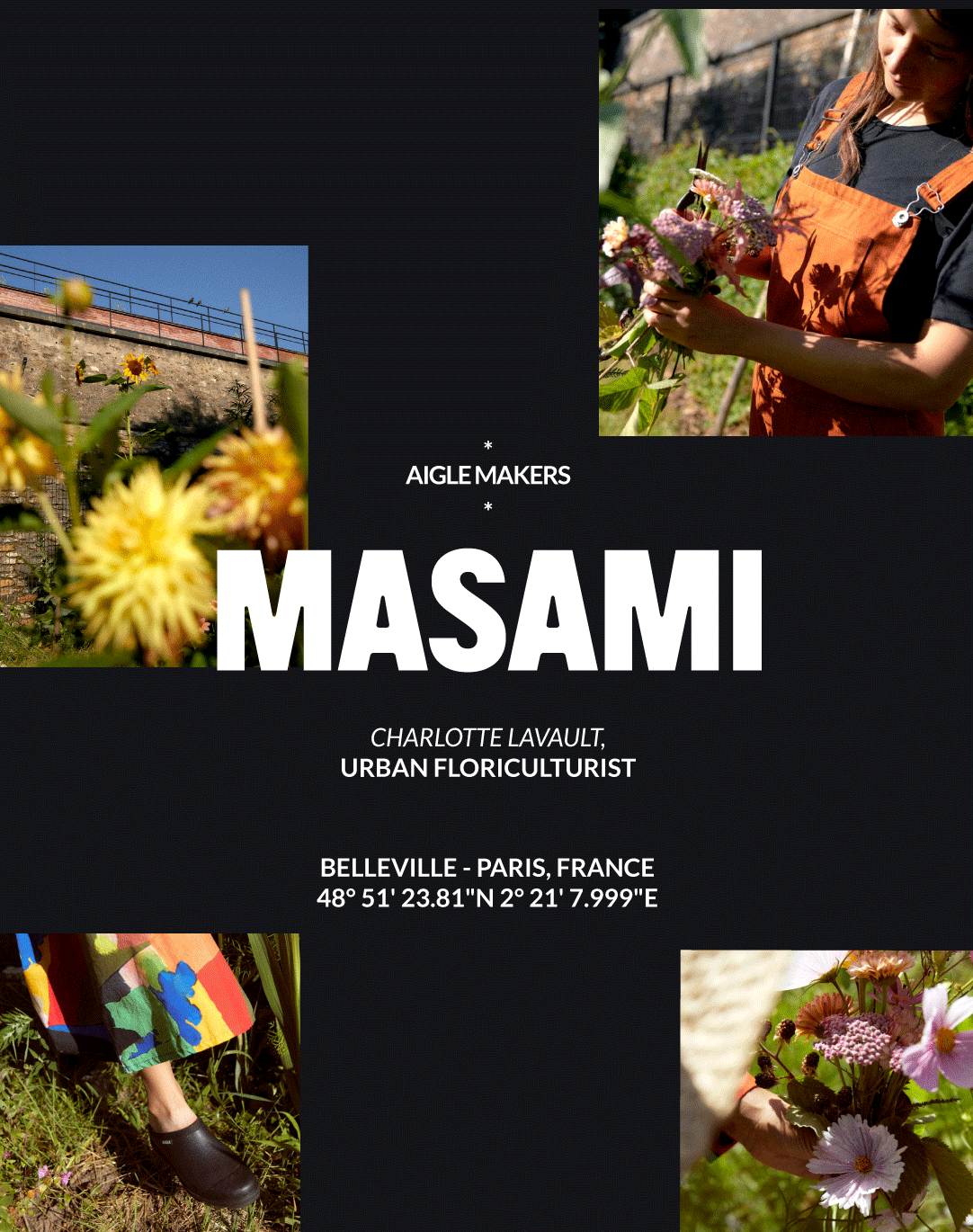Masami Charlotte Lavault presides over a huge flower farm in the heart of the Belleville cemetery in Paris. Being in close contact with living things makes this designer-turned-flower-farmer feel reborn.
The Franco-Japanese floriculturist cultivates the art of patience, listening to the seasons, the stars and the earth. Her meticulousness and commitment echo Aigle’s story.
MEET


What does your farm “Plein Air” mean to you?
This space is both my workplace and a part of me. I really put my blood, tears and sweat into it. It’s a place that is both calm and very challenging. A mixture of soft and hard.
Working with plants requires great patience. How do you cultivate this art?
From seed to flower, you have to wait on average 9 months. There are plants that I have sown and have been waiting for for 3 years. They still haven’t bloomed, and I’m waiting for them. Patience is more a practice than an art. What makes “Plein Air” unique is its connection to Paris. It can be hard to explain to people that, even if it’s June, which we think of as the season for flowers, in the Parisian climate they aren’t yet ready to bloom. You have to wait until late July, August or even September. We need to cultivate a collective patience. I often think of this very simple phrase: “ You don’t eat the fruit the day you sow it.” We have to accept that it takes time, therein lies the beauty. Every time a variety blooms for the first time, it’s a major event for me.
What is the difference between growing flowers in a rural setting and growing them in the city?
I would say that the major difference is probably the scale. My 1200 m2 field is tiny in agricultural terms, but for Paris it’s a palace! Here we are constrained by the walls, but it is a beautiful constraint, because behind them live the city’s people. Allowing people to see our work and our tools and to understand the volume of flowers that can be produced in this type of space is essential. Today, not living in connection with plants is a real danger.




What makes you a responsible urban flower farmer?
80 to 90% of the flowers sold in France come from countries such as Colombia, Ecuador, Kenya and Ethiopia, in all seasons and in unreasonable quantities. This represents an environmental cost and a human cost. In these countries, production costs are much lower than in Europe and the working conditions are much worse. This industry is quite dirty, it needs to be cleaned up. Obviously a micro-farm in Paris is not the solution to all these problems, but this farm also creates an opportunity to discuss these issues.
You use a biodynamic method on your flower farm. What does that mean?
Biodynamics, or what I call ultra-organic farming, is based on the principles of organic farming, to which we add other tools including the biodynamic calendar, a kind of cosmic planner that traces the movements and position of the planets of our solar system throughout the year. Next, I add “biodynamic mixtures”, which are fermented combinations of plants and animal organs. They protect and care for the soil, the plants that grow there, the animals that feed on it and us humans.




Why did you choose to grow flowers specifically?
I trained in agriculture in Morocco and then in the United Kingdom, before going to Japan. What connects these three countries is the immense respect for plants that these very different cultures share. Initially, I trained in market gardening and growing vegetables. One of the farms where I worked in the UK had a big flower-growing operation. The manager assigned me there automatically, I’m sure because he thought I wasn’t very big or tough and didn’t have a lot of experience. I felt like I had been stuck in the corner. But I very quickly came to understand the power of flowers, these pieces of living beings that we offer each other at key moments in our lives. Flowers are messengers of affection, joy and emotion.
WATCH


